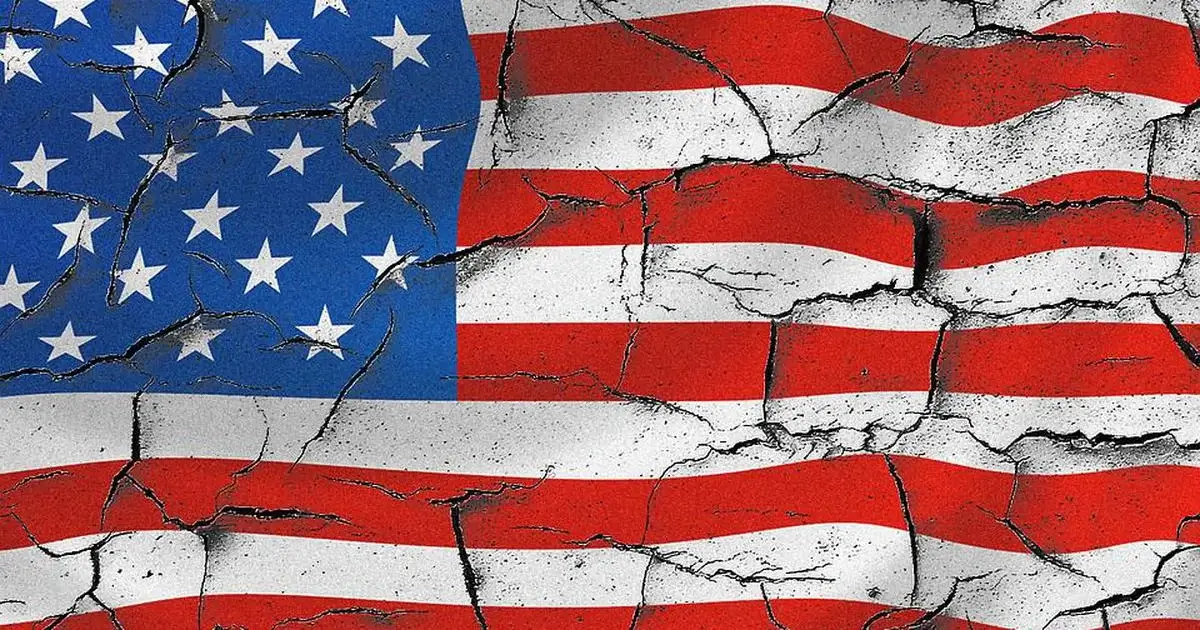Trillions in Debt Payments Could Break U.S. Economy, Ray Dalio Predicts
06.06.2025 12:00 1 min. read Alexander Stefanov
Legendary investor Ray Dalio has issued a stark warning about the trajectory of U.S. government finances, suggesting the country is drifting toward a series of severe economic shocks unless its debt spiral is urgently addressed.
In a June 3 summary of his new book, How Countries Go Broke: The Big Cycle, Dalio outlined a bleak outlook, projecting that debt servicing costs could balloon to as much as $55 trillion within a decade—multiples higher than the government’s annual revenue. Even near-term, interest payments alone could reach $1 trillion a year, eating up a fifth of federal income and worsening deficits.
Dalio argues that rising rates are compounding the risk by making U.S. debt less attractive to investors, potentially triggering a cycle of weaker demand and even higher borrowing costs. “This is how nations unravel financially,” he cautioned.
The Bridgewater Associates founder emphasized that similar collapses have happened throughout history, yet current policymakers remain complacent—convinced that the existing financial order is immune to collapse. He called for a more conservative fiscal stance, warning that failure to act now could leave the country dangerously exposed in future crises.
Dalio’s concerns arrive as Washington faces backlash over the recently passed “One Big Beautiful Bill,” which critics say expands the deficit further. Voices like Elon Musk and prominent fiscal hawks have joined Dalio in raising alarms about a lack of financial discipline at the federal level.
-
1
U.S. PCE Inflation Rises for First Time Since February, Fed Rate Cut Likely Delayed
27.06.2025 18:00 1 min. read -
2
Key U.S. Economic Events to Watch Next Week
06.07.2025 19:00 2 min. read -
3
Gold Beats U.S. Stock Market Over 25 Years, Even With Dividends Included
13.07.2025 15:00 1 min. read -
4
U.S. Announces Sweeping New Tariffs on 30+ Countries
12.07.2025 16:30 2 min. read -
5
US Inflation Heats Up in June, Fueling Uncertainty Around Fed Cuts
15.07.2025 16:15 2 min. read
US Inflation Heats Up in June, Fueling Uncertainty Around Fed Cuts
U.S. inflation accelerated in June, dealing a potential setback to expectations of imminent Federal Reserve rate cuts.
Gold Beats U.S. Stock Market Over 25 Years, Even With Dividends Included
In a surprising long-term performance shift, gold has officially outpaced the U.S. stock market over the past 25 years—dividends included.
U.S. Announces Sweeping New Tariffs on 30+ Countries
The United States has rolled out a broad set of new import tariffs this week, targeting over 30 countries and economic blocs in a sharp escalation of its trade protection measures, according to list from WatcherGuru.
Key U.S. Economic Events to Watch Next Week
After a week of record-setting gains in U.S. markets, investors are shifting focus to a quieter yet crucial stretch of macroeconomic developments.
-
1
U.S. PCE Inflation Rises for First Time Since February, Fed Rate Cut Likely Delayed
27.06.2025 18:00 1 min. read -
2
Key U.S. Economic Events to Watch Next Week
06.07.2025 19:00 2 min. read -
3
Gold Beats U.S. Stock Market Over 25 Years, Even With Dividends Included
13.07.2025 15:00 1 min. read -
4
U.S. Announces Sweeping New Tariffs on 30+ Countries
12.07.2025 16:30 2 min. read -
5
US Inflation Heats Up in June, Fueling Uncertainty Around Fed Cuts
15.07.2025 16:15 2 min. read


